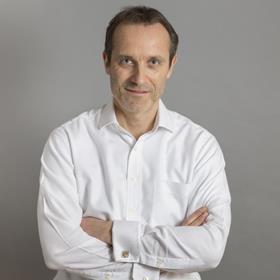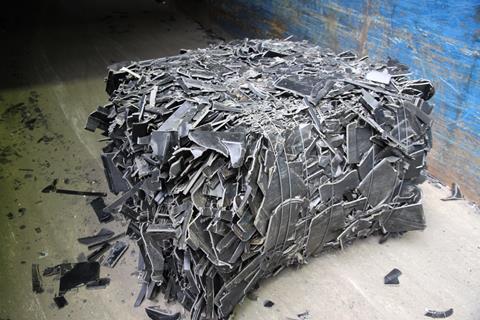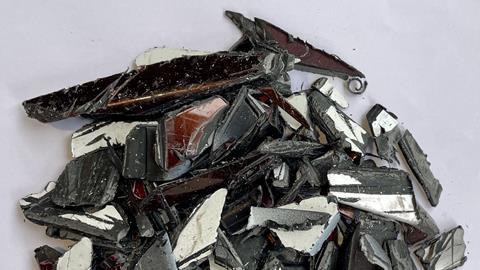Closed-loop recycling is becoming increasingly important for engineering plastics. However, these materials often contain unwanted components that prevent high quality reuse. ReSolved Technologies sees the solution in literally dissolving the waste streams. We believe the market is now ready.
Engineering plastics, including polycarbonates, polyamides, ABS (acrylonitrile butadiene styrene) and HIPS (high-impact polystyrene), are characterised by high mechanical strength and are widely used, for example, in cars and electronic equipment. These are large applications that also generate a large waste stream; in 2022, the global e-waste stream alone accounted for some 17 million tonnes of discarded plastics. And this is only expected to increase in the foreseeable future.

What should we do with it? Dissolve it and recycle it. At least that’s what Norbert Fraunholcz, ceo and founder of ReSolved Technologies, based at the Brightlands Chemelot Campus in Geleen, is hoping to do. Within a year, he expects to have a pilot plant ready that will use a new process to prepare engineering plastics for reuse. With this, we hope to really get the recycling of engineering plastics off the ground.
‘An impure recycled material has lost some of its properties’
Bouillon cubes
An impure recycled material has lost some of its properties and it is necessary to find an appropriate replacement market. This is particularly difficult for engineering plastics, as they tend to be used in high-value applications with correspondingly high quality requirements. It used to be less of a problem, says Fraunholcz. ’The recycling rate was still very low. But now companies are increasingly realising that closed-loop recycling is really essential for many types of plastics and applications. The more we recycle, the more important it becomes.
Complete recycling is not yet possible for engineering plastics because the current technology, mechanical recycling, still has some gaps. Mechanical recycling uses machines to separate, reduce and wash the waste,” says Fraunholcz. But while the method is quite capable of removing most of the contaminants, it is less capable of removing the residuals. These residuals include so-called legacy additives, substances that have been banned but are still present in the waste stream. It is the presence of these contaminants that determines the market value and thus the final value of the recyclate.
‘We remove the solvent, leaving a very pure recyclate’
But it also determines whether the recyclate can be used in new products at all. ReSolved Technologies now believes it can fill this gap with a solvent-based technology. We remove the old additives by dissolving the waste in an organic liquid,” says Fraunholcz. He says it is a bit like dissolving a bouillon cube in hot water. It releases all the fats and spices. In plastic waste, too, everything is stuck together, so it is very difficult to separate the components that are in it. Once in solution, they all come loose and can be separated much more easily. After the purification step, we remove the solvent and are left with a very pure recyclate. These are biodegradable organic solvents with low toxicity. The solvent is also part of a closed cycle and is reused.
Hybrid-recycling
In fact, the approach taken has been around for some time and these technologies have also been shown to work on a pilot scale. ‘Unfortunately, the market was not ready for it then,’ Fraunholcz points out. ‘Mainly because closed loop recycling was not in the picture at all at that time. Yet when we noticed that it was becoming a hot topic in 2019, we adopted one of the existing technologies and developed it further. Our technology is suitable for a number of engineering plastics, such as ABS and HIPS, as well as soft PVC.’ The establishment of ReSolved Technologies followed in late 2020.
Article continued below the image

The start-up now has a pre-pilot plant, which can process samples from mechanical recyclers. We don’t see our technology as a replacement for mechanical recycling, but more as a neat addition,’ says Fraunholcz. ‘A kind of hybrid recycling that combines the best of both technologies.’ He still sees a lot of development potential for their technology; it could be even more efficient, cheaper and more energy efficient. But the team (which consists of five more people besides Fraunholcz) is also working on scaling up. Later this year, it should lead to a pilot plant capable of recycling 25 kilograms per hour. And by 2026, there should be a full-scale plant capable of processing 4,000 tonnes per year.
Fraunholcz is sure that the technology has potential. ‘And an increasing number of parties are beginning to see it too. We are working with several parties to process specific waste streams and applications of the recyclate, including MIREC BV, a major player in electronics waste processing in the Netherlands.’ Ultimately, Fraunholcz and colleagues want to be able to play a role in supplying high-quality recyclate for the more high-end markets, such as in electrical appliances and cars. ‘In this way, we can contribute to a circular and sustainable economy.’













Nog geen opmerkingen